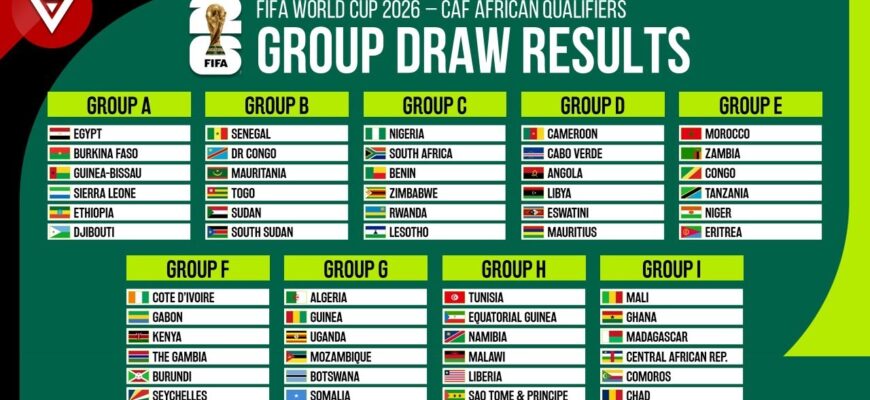For a nation synonymous with footballing artistry and four World Cup titles, Italy`s recent track record in qualifying for the sport`s showpiece event has been, to put it mildly, an exercise in high-stakes drama and occasional heartbreak. As the Azzurri embark on their journey for the 2026 World Cup, old anxieties resurface, compounded by new rules and a fiercely competitive group.
The Current Conundrum in Group I
Italy, the reigning European champions, find themselves once again in a familiar and unenviable position: playing catch-up. Having started their 2026 World Cup qualifying campaign later than their rivals due to their participation in the Nations League quarter-finals, the Azzurri are already trailing significantly in Group I.
The early pacesetters, Norway and Israel, have capitalized on Italy`s delayed entry. Norway boasts a perfect record, securing maximum points from their first four outings, a formidable start that places them comfortably at the summit. Israel is not far behind, with a commendable nine points from four matches. Italy, with six points from three fixtures—a dispiriting 3-0 loss to Norway in Oslo followed by victories against Moldova and Estonia—must now navigate a path fraught with the urgency of immediate results and the looming shadow of past failures.
The Specter of Play-offs: A Recurring Nightmare
The phrase “World Cup play-offs” sends shivers down the spine of any Italian football fan. The memories of missing out on the 2018 and 2022 World Cups after losing in the play-off stages are still vivid. For a team that has lifted the trophy four times, these consecutive absences were a national embarrassment, a stark reminder that past glory guarantees nothing in the unforgiving landscape of international football.
The stakes for 2026 are clear: only the 12 group winners across Europe will secure a direct ticket to the expanded tournament in Canada, Mexico, and the United States. The 12 runners-up will be relegated to the play-off stage, a lottery that Italy has proven particularly adept at losing. With 16 European teams eventually participating, the margin for error remains incredibly thin for a nation accustomed to direct passage.
The Underrated Decider: Goal Difference
Perhaps the most crucial, yet often overlooked, detail in Italy`s current predicament is the tie-breaking rule: goal difference takes precedence over head-to-head records when teams finish level on points. This seemingly technical nuance transforms every match, every attacking opportunity, and every defensive stand into a potential game-changer for Italy.
The 3-0 defeat against Norway wasn`t just three points lost; it was three goals surrendered that could prove agonizingly decisive. While a win is always the primary objective, the Azzurri must now approach their remaining fixtures with an acute awareness of the scoreline. A 1-0 victory might secure points, but a 4-0 thrashing could be invaluable in a tight group. This strategic imperative adds a layer of complexity for a team that has historically relied on tactical pragmatism and defensive solidity, sometimes at the expense of rampant goal-scoring.
In the beautiful game, sometimes beauty isn`t enough. For Italy, every goal scored, or crucially, not conceded, could literally be the difference between a triumphant return to the global stage and another agonizing chapter in their recent qualification woes. It`s a pragmatic reality that the romantics of calcio might find a tad unpoetic.
The Road Ahead: Precision and Pressure
For Italy, the path to the 2026 World Cup is a meticulous calculation of points, goals, and unwavering performance. They must not only win their remaining matches, especially the crucial return fixtures against Norway and Israel, but also do so with an eye on their goal difference. Each game becomes a mini-final, demanding clinical finishing and impenetrable defense. The psychological pressure on the squad will be immense, as they carry the weight of a nation yearning for World Cup redemption.
The squad, under the guidance of its coach, will need to balance the traditional Italian strengths of tactical discipline and defensive organization with a more aggressive, goal-oriented approach. This transformation, while necessary, is not without its risks.
Conclusion: A Nation Holds Its Breath
Italy`s quest for the 2026 World Cup is more than just another qualifying campaign; it is a narrative of redemption, a test of resilience, and a strategic chess match where every goal counts. The Azzurri face formidable opponents and the ghosts of their recent past. Their ability to overcome these challenges, to convert pressure into performance, and to master the intricacies of goal difference will ultimately determine if they can finally reclaim their rightful place among the world`s elite on football`s grandest stage. The footballing world watches, hopeful for a return of the “Azzurri magic,” yet fully aware of the demanding road ahead.








